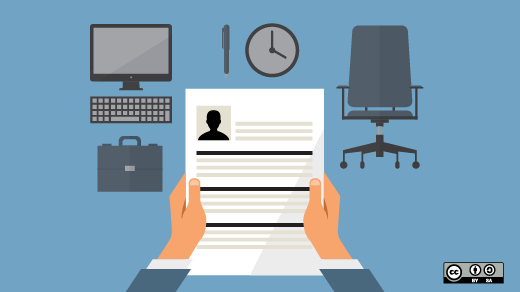6.4 KiB
How to transition into a Developer Relations career
Combine your love for open source software with your love for the community in a way that allows you to invest your time in both.
Let's say you've found an open source project you really love and you want to do more than just contribute. Or you love coding, but you don't want to spend the rest of your life interacting more with your computer than you do with people. How do you combine your love for open source software with your love for the community in a way that allows you to invest your time in both?
Developer Relations: A symbiotic relationship
Enter community management, or as it's more commonly called in the tech industry, Developer Relations (DevRel for short). The goal of DevRel is, at its core, to empower developers. From writing content and creating documentation to supporting local meetups and bubbling up developer feedback internally, everything that a Developer Relations professional does on a day-to-day basis is for the benefit of the community. That's not to say that it doesn't benefit the company as well! After all, as Developer Relations professionals understand, if the community succeeds, so will the company. It's the best kind of symbiotic relationship!
These hybrid roles have been around since shortly after the open source and free software movements started, but the Developer Relations industry—and the Developer Advocate role, in particular—have exploded over the past few years. So what is Developer Relations exactly? Let's start by defining "community" so that we're all on the same page:
Community: A group of people who not only share common principles, but also develop and share practices that help individuals in the group thrive.
This could be a group of people who have gathered around an open source project, a particular topic such as email, or who are all in a similar job function—the DevOps community, for instance.
As I mentioned, the role of a DevRel team is to empower the community by building up, encouraging, and amplifying the voice of the community members. While this will look slightly different at every company, depending on its goals, priorities, and direction, there are a few themes that are consistent throughout the industry.
-
Listen: Before making any plans or goals, take the time to listen. * Listen to your company stakeholders: What do they expect of your team? What do they think you should be responsible for? What metrics are they accustomed to? And what business needs do they care most about? * Listen to your customer community: What are customers' biggest pain points with your product? Where do they struggle with onboarding? Where does the documentation fail them? * Listen to your product's technical audience: What problems are they trying to solve? What could be done to make their work life easier? Where do they get their content? What technological advances are they most excited about?
-
Gather information Based on these answers, you can start making your plan. Find the overlapping areas where you can make your product a better fit for the larger technical audience and also make it easier for your customers to use. Figure out what content you can provide that not only answers your community's questions but also solves problems for your company's stakeholders. Learn about the areas where your co-workers struggle and see where your strengths can supplement those needs.
-
Make connections Above all, community managers are responsible for making connections within the community as well as between community members and coworkers. These connections, or "DevRel qualified leads," are what ultimately shows the business value of a community manager's work. By making connections between community members Marie and Bob, who are both interested in the latest developments in Python, or between Marie and your coworker Phil, who's responsible for developer-focused content on your website, you're making your community a valuable source of information for everyone around you.
By getting to know your technical community, you become an expert on what customer needs your product can meet. With great power comes great responsibility. As the expert, you are now responsible for advocating internally for those needs, and you have the potential to make a big difference for your community.
Getting started
So now what? If you're still with me, congratulations! You might just be a good fit for a Community Manager or Developer Advocate role. I'd encourage you to take community work for a test drive and see if you like the pace and the work. There's a lot of context switching and moving around between tasks, which can be a bit of an adjustment for some folks.
Volunteer to write a blog post for your marketing team (or for Opensource.com) or help out at an upcoming conference. Apply to speak at a local meetup or offer to advise on a few technical support cases. Get to know your community members on a deeper level.
Above all, Community Managers are 100% driven by a passion for building technical communities and bringing people together. If that resonates with you, it may be time for a career change!
I love talking to professionals that help others grow through community and Developer Relations practices. Don't hesitate to reach out to me if you have any questions or send me a DM on Twitter.
via: https://opensource.com/article/19/3/developer-relations-career
作者:Mary Thengvall 选题:lujun9972 译者:译者ID 校对:校对者ID
